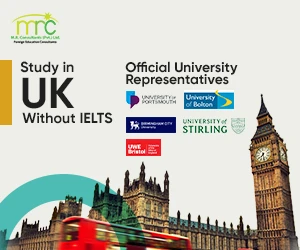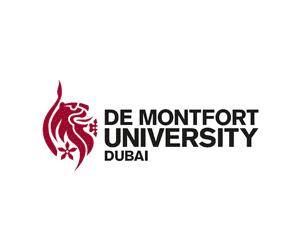MBBS In Tajikistan
Pursuing an MBBS (Bachelor of Medicine, Bachelor of Surgery) degree in Tajikistan is a viable option for international students. Tajikistan offers several medical universities that provide quality education in medicine and are recognized by the World Health Organization (WHO) and other medical authorities including PMC for Pakistani students.
Facts About Tajikistan
Capital: Dushanbe
Population: 9.5 M
Literacy rate: 99.72%
Language: Tajik & Russian
No of Muslims: 98% Muslims
Currency: Somoni (1 Somoni= 27 PKR)
Crime ratio: 0.91%
Climate Of Tajikistan
Tajikistan experiences a pronounced continental climate with distinct seasonal variations. The country enjoys relatively dry weather, and precipitation is limited, especially in the lowland areas. However, the mountainous regions may receive more precipitation, particularly in the form of snow in the winter and occasional rain in the summer.
Facts
|
Course Name |
MBBS/ MD |
|
Duration |
5-6 Years |
|
Eligibility |
Intermediate |
|
Language of Teaching |
English |
|
Accreditation |
PMC/ NMC/ PMDC, USMLE, ECFMG, PLAB |
|
Living Cost |
400- 450 USD/ Semester |
|
Course Fee |
2250 USD/ Semester |
|
Entrance Exam |
No |
|
English test requirement |
No |

Why Study MBBS/ MD In Tajikistan
Some reasons why international students consider studying MBBS in Tajikistan include:
-
Compared to many other countries, the cost of medical education in Tajikistan is relatively lower, making it an attractive choice for students with budget constraints.
-
Universities in Tajikistan offer MBBS programs in English, which helps international students who might not be fluent in the local language.
-
MBBS degrees from recognized Tajikistani universities are valid in many countries, and graduates can pursue medical licensure and practice medicine after meeting specific licensing requirements in their home countries.
-
Tajikistan's medical universities often have a diverse student population, including students from various countries, creating a multicultural learning environment.
-
Living and studying in Tajikistan can provide international students with a unique cultural experience, allowing them to learn about the local traditions and customs.
Duration Of MBBS In Tajikistan
Tajikistan medical universities follow a semester system for its MBBS program. Avicenna Tajik State Medical University is one of the prominent medical universities in Tajikistan and offers various medical programs, including the MBBS course.
Total of five years semester system at Avicenna Tajik State Medical University generally follows the structure mentioned below:
-
Academic Year:
-
The academic year is typically divided into two semesters, similar to the majority of universities in Tajikistan.
-
-
First Semester:
-
The first semester usually commences in September and runs until January or early February.
-
-
Second Semester:
-
The second semester typically starts in February and concludes in June.
-
-
Course Structure:
-
During each semester, MBBS students at Avicenna TSMU take a set of courses related to medical sciences. These courses cover both theoretical and practical aspects of medicine.
-
-
Examinations and Assessments:
-
At the end of each semester, students are assessed through written exams, practical exams, and other forms of assessments to evaluate their understanding and knowledge of the subjects.
-
-
Clinical Training:
-
In the later years of the MBBS program, students undergo clinical rotations and training in various medical specialties, gaining hands-on experience in hospitals and healthcare facilities.
-
Affiliation Of Tajikistan Medical University
Medical universities including Avicenna Tajik State Medical University is affiliated with
-
PMC (Pakistan Medical Commission)
-
USMLE (United States Medical Licensing Examination)
-
ECFMG (Educational Commission for Foreign Medical Graduates)
-
IAAR (Independent Agency for Accreditation and Rating)
-
AMC (Australian Medical College)
-
FAIMER (Foundation for Advancement of International Medical Education and Research)
-
WHO (World Health Organization)
-
WFME (World Federation for Medical Education)
-
PLAB (Professional and Linguistic Assessments Board)
Cost Of MBBS In Tajikistan
The cost of studying MBBS in Tajikistan can vary depending on the university or medical institution you choose and other factors such as the duration of the program, and living expenses. Here are some general cost considerations for studying MBBS in Tajikistan:
-
On average, international students might expect to pay an initial cost of 3700 and from 2nd to 10th semester, students have to pay 2250 to 2500 USD/ semester tuition fee. Initial cost included
-
1st semester tuition fee
-
Health card fee
-
University identity card fee
-
Medical examination
-
Airport pickup
-
Translation of documents in Tajik language
-
Notarization fee
-
Police registration fee
-
Management charges
-
-
The average monthly cost for accommodation can range from USD 300 to USD 320.
-
Living expenses such as food, transportation, books, and other miscellaneous costs will depend on your lifestyle and spending habits. On average, you might budget around 120 -150 USD per month for living expenses.
Career Opportunities In Tajikistan After Graduation
After completing MBBS in Tajikistan, there are several career opportunities for medical graduates both within Tajikistan and potentially in other countries.
-
MBBS graduates can choose to work as general practitioners or specialists in hospitals, clinics, and other healthcare facilities across Tajikistan. They can provide medical services to patients and diagnose and treat various health conditions.
-
Medical graduates can pursue postgraduate studies and specialize in a specific area of medicine. Specializations may include fields such as surgery, internal medicine, pediatrics, gynecology, radiology, and more. Specializing can enhance career prospects and lead to more advanced medical roles.
.png)
Admission In MBBS Degree Program In Tajikistan
The admission process for the MBBS degree program in Tajikistan typically involves several steps including its eligibility criteria.
Who Are Eligible from Pakistan To Get Admission In MBBS Program
Review the eligibility criteria for international students applying to the MBBS program. Universities may have specific requirements but some of general are as follows
-
Applicant must be 17 years of age
-
Must have matric and intermediate in (physics+ Chemistry and Biology)
-
Minimum marks required for admission are 50% in FSc pre- medical
-
Applicant must have studied English as a subject
Application Process In Tajik State Medical University For MBBS
-
Obtain the application form from the university's official website or contact the admissions office directly. Complete the application form with accurate and up-to-date information.
-
Prepare the necessary supporting documents
-
Submit your completed application form and supporting documents to the university's admissions office.
-
Wait for the university to review your application and make an admission decision. If accepted, you will receive an acceptance letter from the university.
-
Once you receive the acceptance letter, apply for a student visa at the Tajikistani embassy.
Documents Required For MBBS/ MD In Tajikistan
-
Matric/ O level certificate and result card
-
Result card and certificate of Fsc Pre medical/ A level
-
Valid passport
-
Passport size picture (10 with white background)
-
Attested documents by MOFA and IBCC
-
Medical certificate

Visa For Tajikistan From Pakistan
Here are the general steps to obtain a study visa for Tajikistan from Pakistan:
-
Before applying for a study visa, you must first receive an acceptance letter from a recognized university or educational institution in Tajikistan. This letter will confirm your enrollment and the duration of your course of study.
-
Obtain the study visa application form from the official website of the Embassy of Tajikistan in Pakistan.
-
Fill out the visa application form accurately and completely with all the required information.
-
Prepare the necessary supporting documents, which usually include:
-
A valid passport with a minimum of six months validity from the date of entry into Tajikistan.
-
Passport-sized photographs (usually two).
-
Admission/acceptance letter from the Tajikistani educational institution.
-
Proof of sufficient funds to cover tuition fees and living expenses during your stay in Tajikistan.
-
Medical certificate indicating you are in good health.
-
Police clearance certificate (to show you have no criminal record).
-
Proof of accommodation arrangements in Tajikistan.
-
-
Submit your completed visa application form along with all the required documents to the Embassy of Tajikistan in Pakistan.
-
You may be required to attend an interview at the embassy.

Frequently Asked Questions
1 - Is the MBBS degree from Tajikistan recognized internationally?
Yes, MBBS degrees from recognized medical universities in Tajikistan are generally recognized internationally. However, it's essential to verify the accreditation status of the university you plan to attend and check if the degree is accepted in the country where you intend to practice medicine.
2 - What is the duration of the MBBS program in Tajikistan?
The MBBS program in Tajikistan typically has a duration of five years for international students. This includes both theoretical and practical training.
3 - Are the MBBS programs in Tajikistan taught in English?
Some medical universities in Tajikistan offer MBBS programs in English to cater to international students. However, there might be universities where the medium of instruction is Russian. It's essential to check with the specific university about the language of instruction for the MBBS program.
4 - Are there opportunities for clinical training during the MBBS program?
Yes, during the MBBS program in Tajikistan, students usually have opportunities for clinical training and practical experience in hospitals and healthcare facilities as part of their curriculum.
5 - What is the climate like in Tajikistan?
Tajikistan experiences a diverse climate due to its varied topography. Lowland areas have a continental climate with hot summers and mild winters, while the highland regions have cooler temperatures, especially in the winter, with some areas experiencing snowfall.
FREE STUDY ABROAD
Free study abroad expert advice
Modal Title
Dear User Name
We Have sent a 4-digit code to your
mobile number



.gif)



























